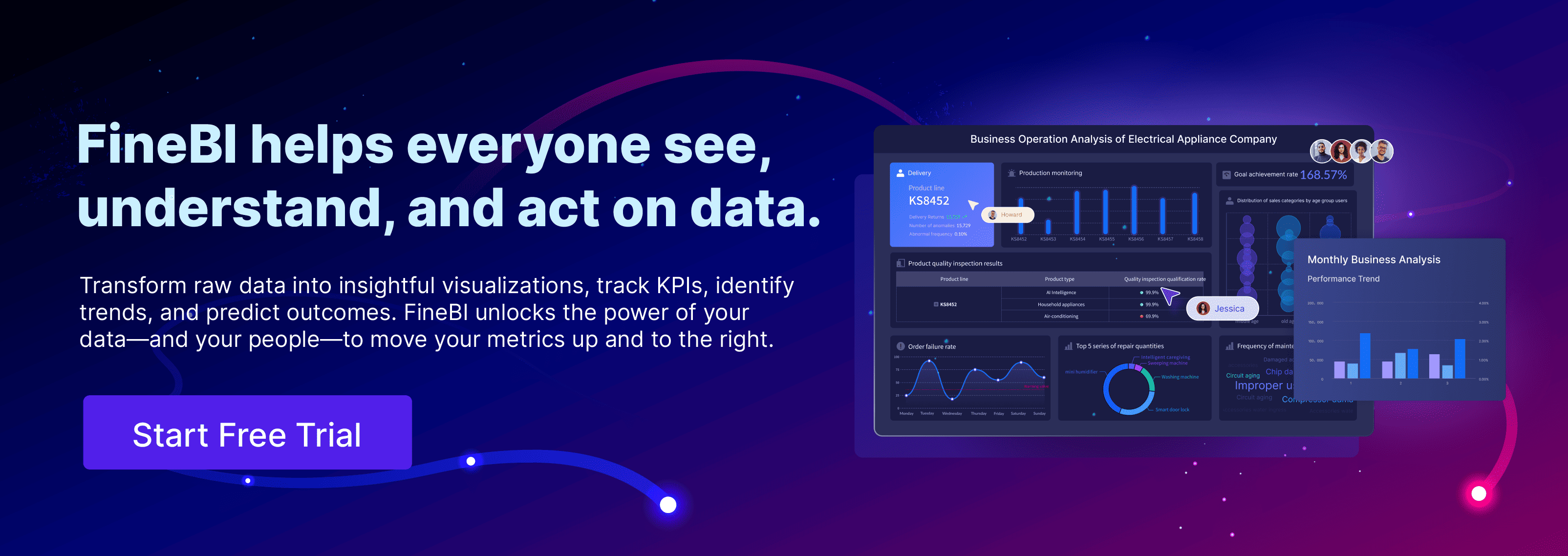Data analysts in Malaysia can look forward to promising opportunities as the data analyst salary continues to rise in 2025. The average monthly data analyst salary is 6,021 MYR, with a range spanning from 3,078 MYR to 9,475 MYR. The median salary is 74,560 MYR annually, reflecting the growing demand for skilled professionals across industries. Notably, 25% of data analysts earn below 50,020 MYR, while 75% earn less than 101,020 MYR. These figures underscore the competitive nature of the field and the increasing value placed on expertise. Understanding these insights will help you navigate the evolving data analytics landscape.
Key Takeaways
- Data analysts in Malaysia may earn about 6,021 MYR monthly in 2025. Salaries range from 3,078 MYR to 9,475 MYR.
- Jobs in finance, tech, and e-commerce need data analysts. These jobs pay well and offer chances to grow.
- Getting certifications, like the FanRuan Global Certification, can help you get better jobs and higher pay.
- More experience and higher positions mean better salaries. Beginners earn less than senior workers who make more money.
- Using tools like FineBI and FineReport can boost your skills. These tools help you show data clearly and make you important at work.
Data Analytics Job Market in Malaysia: Trends and Data Analyst Salary Insights
Growing demand for data analysts in Malaysia
The demand for data analysts in Malaysia continues to grow as businesses increasingly rely on data-driven strategies. Companies across sectors are actively hiring data analysts, offering competitive salaries and career growth opportunities. This trend reflects the high value placed on professionals who can transform raw data into actionable insights.
Emerging fields like artificial intelligence, fintech, and digital marketing further amplify this demand. These industries depend on skilled data analysts to interpret complex datasets and guide decision-making processes. As a result, the job market for data analytics professionals is expanding rapidly, creating exciting opportunities for you to build a rewarding career.
Key industries driving demand for data analytics
Several industries in Malaysia contribute significantly to the demand for data analytics professionals. Finance, technology, and e-commerce lead the way, offering high opportunities for data analysts. Marketing and telecommunications also play a role, albeit at a moderate level.
| Industry | Contribution to Demand for Data Analytics Professionals |
|---|---|
| Finance | High |
| Technology | High |
| E-commerce | High |
| Marketing | Moderate |
| Telecommunications | Moderate |
These industries rely on data analytics to optimize operations, improve customer experiences, and gain competitive advantages. For instance, finance companies use data analytics to assess risks, while e-commerce platforms leverage it to understand consumer behavior.
Role of government initiatives in shaping the job market
Government initiatives in Malaysia play a pivotal role in shaping the data analytics job market. Programs like the Jamin Kerja Programme focus on wage subsidies, upskilling, and reskilling to boost employment in this sector. Additionally, the government aims to train 50,000 cybersecurity and data professionals by 2025, addressing the rising demand for skilled workers.
These efforts not only enhance your employability but also ensure that Malaysia remains competitive in the global data analytics market. By participating in these programs, you can gain valuable skills and certifications that align with industry needs.
Factors Influencing Data Analyst Salary in 2025
Importance of technical skills and certifications
Your technical skills and certifications play a crucial role in determining data analyst salary as a data analyst in Malaysia. Employers value candidates who possess specialized knowledge and can demonstrate their expertise through certifications. For example, certifications like CompTIA Data+ validate your ability to analyze data effectively, often leading to higher salaries compared to uncertified peers.
A survey by Glassdoor revealed that 72% of entry-level data analysts hired in 2024 had completed at least one professional certification. This trend highlights the importance of certifications in standing out in a competitive job market. Senior-level roles, such as data architects, often require advanced certifications and technical skills, with total compensation reaching as high as $139,747 annually.
To maximize your earning potential, focus on acquiring certifications tailored to your career goals. Programs like the FanRuan Global Certification Examination offer industry-recognized credentials, helping you showcase your expertise and enhance your employability.
Role of experience and seniority in data analyst salary growth
Experience and seniority significantly impact data analyst salary growth in data analyst roles. Entry-level positions typically offer lower salaries, but as you gain experience, your earning potential increases. For instance, entry-level data analysts in Malaysia earn around £32k annually, while senior-level professionals can make upwards of £54k.
The progression from entry-level to senior roles often involves mastering advanced skills, taking on leadership responsibilities, and contributing to strategic decision-making. Employers reward these contributions with higher salaries and performance bonuses. In Malaysia, top performers may see salary increases of 10% or more, along with bonuses ranging from one to four months of base pay.
If you aim to accelerate your career growth, focus on building expertise in specialized areas of data analytics. Gaining hands-on experience and demonstrating your ability to deliver actionable insights will position you for senior roles and higher compensation.
Impact of industry-specific demand on compensation
The industry you work in greatly influences your data analyst salary. High-demand sectors like finance, technology, and e-commerce offer competitive salaries due to their reliance on data analytics for optimizing operations and driving growth. For example, finance companies use data analytics to assess risks, while e-commerce platforms analyze consumer behavior to improve customer experiences.
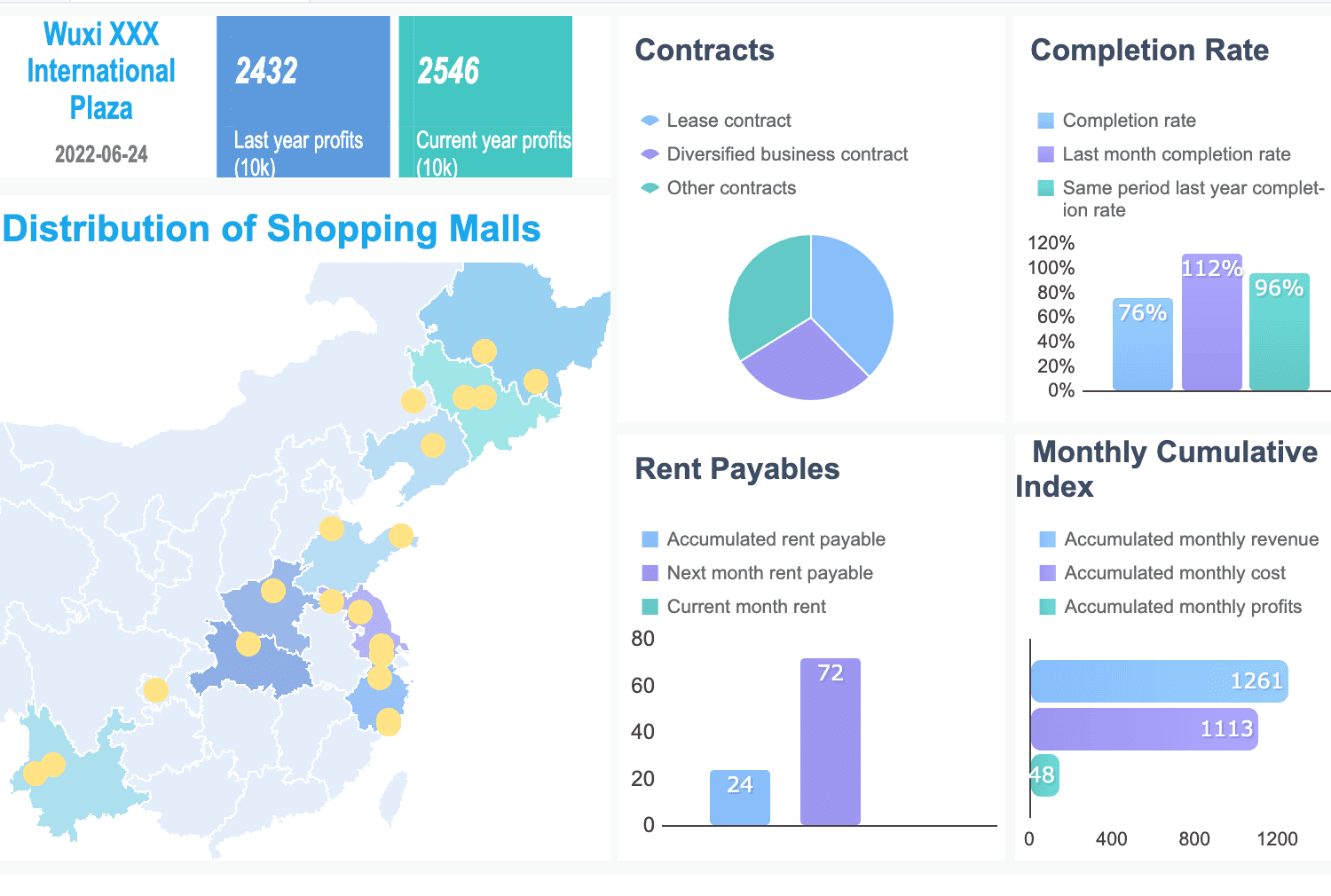
Industry surveys and data analyst salary benchmarks from firms like Mercer and Willis Towers Watson provide robust data on compensation trends across sectors. These surveys reveal that industries with high demand for data analysts often offer better pay packages, including bonuses and benefits. Real-time data analyst salary platforms like LinkedIn also show that salaries for data analyst roles vary based on industry-specific demand and geographic location.
To capitalize on these opportunities, consider targeting industries with high demand for data analytics professionals. Staying informed about market trends and aligning your skills with industry needs will help you secure competitive compensation packages.
Geographic location and its influence on data analyst salary
Data analyst salary in Malaysia depends significantly on your geographic location. Major cities like Kuala Lumpur, Penang, and Johor Bahru offer higher salaries compared to smaller towns and rural areas. This disparity arises from differences in living costs, industry presence, and demand for data analytics professionals.
Why Major Cities Offer Higher Salaries
In major cities, businesses rely heavily on data analytics to stay competitive. These urban hubs host multinational corporations, tech startups, and financial institutions that prioritize data-driven strategies. As a result, they actively seek skilled data analysts and offer attractive compensation packages to secure top talent.
Living in a major city also means higher living costs. Employers adjust salaries to reflect these expenses, ensuring that you can maintain a comfortable lifestyle. For example, data analysts in Kuala Lumpur often earn more than their counterparts in smaller towns due to the city's vibrant economy and higher demand for analytics expertise.
Challenges in Smaller Towns and Rural Areas
Smaller towns and rural areas typically have fewer opportunities for data analysts. Businesses in these regions often operate on a smaller scale and may not require advanced data analytics capabilities. Consequently, salaries in these areas tend to be lower.
However, working in smaller towns can offer unique advantages. You may experience a lower cost of living and a more relaxed work environment. If you're starting your career or prefer a quieter lifestyle, these locations might align with your goals, even if the salary is less competitive.
How to Leverage Location for Career Growth
Choosing the right location can significantly impact your career trajectory. Major cities provide access to networking opportunities, industry events, and advanced training programs. These resources can help you enhance your skills and gain valuable insights into the latest trends in data analytics.
If relocating to a major city isn't feasible, consider remote work opportunities. Many companies now hire data analysts to work from anywhere, allowing you to access higher salaries without moving. By leveraging tools like FineBI and FineReport, you can showcase your expertise and deliver impactful results, regardless of your location.
Comparison of Data Analyst Salary with Other Roles and Regions
How data analyst salary compare to other tech roles in Malaysia
Data analyst roles offer competitive compensation compared to other tech positions in Malaysia. Entry-level data analysts earn an average of RM45,000 annually, while mid-level professionals make around RM60,000. Experienced data analysts with 10-19 years of expertise can command salaries as high as RM92,000.
When compared to roles like software developers or IT support specialists, data analysts often enjoy higher earning potential due to the specialized skills required. For instance, software developers in Malaysia typically earn between RM40,000 and RM80,000 annually, depending on experience. This highlights the value placed on data-driven decision-making in today’s business landscape.
Comparison with data analyst salary in neighboring countries
The average data analyst salary in Malaysia ranges from $700 to $850 per month. This is relatively competitive when compared to neighboring countries like Indonesia ($300-$400), Vietnam ($150-$200), and the Philippines ($200-$300). However, Singapore stands out with an average monthly salary of $3,500 to $4,000, reflecting its position as a regional tech hub.
| Country | Average Monthly Salary (USD) |
|---|---|
| Malaysia | 700 - 850 |
| Singapore | 3,500 - 4,000 |
| Indonesia | 300 - 400 |
| Vietnam | 150 - 200 |
| Philippines | 200 - 300 |
While Malaysia offers a favorable cost of living compared to Singapore, the latter’s higher salaries attract top talent. For entry-level positions, Malaysia provides a strong starting point, especially for those looking to build their careers in data analytics.
Global trends and their influence on Malaysia's data analyst salary landscape
Global trends significantly impact data analyst salary in Malaysia. Countries like the USA and Switzerland offer average salaries of $105,800 and $116,300, respectively, which are substantially higher than Malaysia’s. These figures reflect the global demand for skilled data analysts and the premium placed on expertise.
As businesses worldwide adopt data-driven strategies, the demand for data analysts continues to rise. This trend influences Malaysia’s job market, encouraging companies to offer competitive salaries to retain talent. By staying updated on global trends and acquiring certifications like the FanRuan Global Certification Examination, you can position yourself for success in this evolving field.
Exploring Career Growth and Data Analyst Salary
Emerging roles and specializations in data analytics
The field of data analytics is evolving rapidly, creating exciting opportunities for you to explore new roles and specializations. Over the last decade, data scientist positions grew by 340%, with projections indicating a 32% increase in the next ten years. This growth reflects the rising demand for professionals who can extract actionable insights from complex datasets.
Several specialized roles have emerged, each focusing on different aspects of data analytics:
- Business Analysts use data to guide strategic decisions.
- Data Scientists develop models and algorithms to uncover patterns.
- Data Engineers manage data storage and collection systems.
- Data Visualization Specialists create visual representations to simplify understanding.
The demand for Tableau developers and analysts is also increasing, with a projected growth rate of 21% from 2018 to 2028. As artificial intelligence becomes more integrated into analytics, you can expect a shift toward AI-focused skills in job descriptions.
Upskilling opportunities with certifications like FanRuan Global Certification Examination
Upskilling is essential for staying competitive in data analyst roles. Certifications validate your expertise and help you stand out in the job market. Programs like the FanRuan Global Certification Examination offer industry-recognized credentials tailored to different skill levels.
These certifications cover foundational knowledge and advanced operations, making them suitable for entry-level professionals and experienced analysts. By earning certifications such as FineBI Associate or FineBI Professional, you demonstrate your ability to deliver high-quality insights and solutions.

Additionally, the program provides resources like training videos and live webinars, allowing you to learn at your own pace. Joining the FanRuan Data Talent Pool further enhances your career prospects by connecting you with high-paying opportunities.
Predictions for the data analytics job market beyond 2025
The future of data analytics promises significant growth opportunities. Demand for data science skills is projected to increase by over 25% annually, driven by the exponential rise in data generation. Real-time analytics and the democratization of tools will make data accessible to non-technical users, expanding the scope of data analyst roles.
Key trends include the integration of AI and machine learning, which will drive innovation in analytics. Automation will mature, enabling faster and more accurate insights. As businesses adopt these technologies, your expertise in advanced analytics will become increasingly valuable.
By staying updated on these trends and acquiring certifications, you position yourself for success in a dynamic and growing field. The data analytics landscape will continue to evolve, offering you opportunities to shape the future of decision-making across industries.
Leveraging Tools like FineBI and FineReport for Higher Data Analyst Salary
How FineBI empowers data analysts with self-service analytics
FineBI simplifies data analysis, enabling you to perform tasks independently without relying on IT support. Its intuitive interface and drag-and-drop functionality make it accessible, even if you lack technical expertise. You can connect to various data sources, analyze data in real time, and generate actionable insights effortlessly.
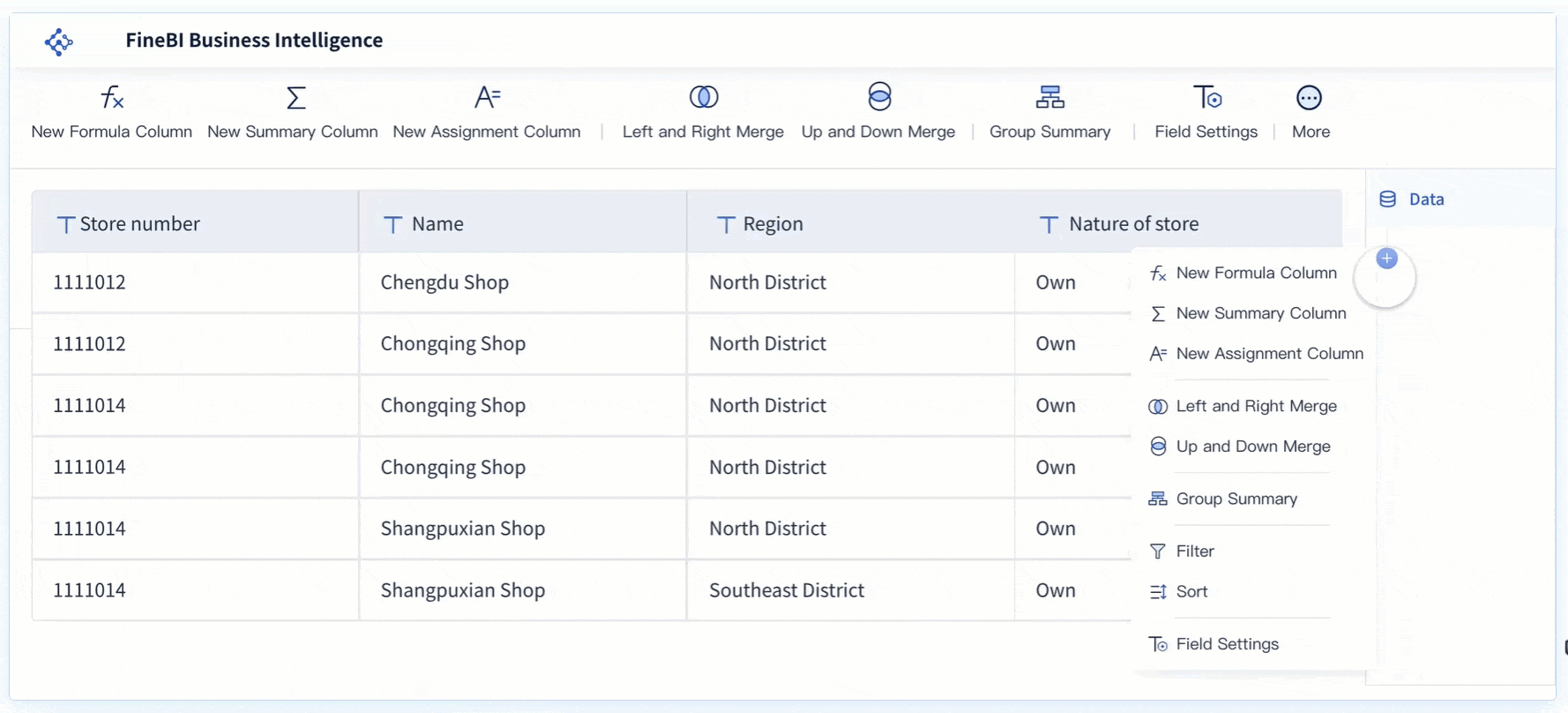
FineBI’s capabilities shine in diverse scenarios:
- Business Self-Service Analysis: Departments use FineBI to monitor trends and report findings to headquarters, fostering informed decision-making.
- Data Management Control: Strict permission settings ensure you access only relevant data, maintaining security and efficiency.
- Environmental Protection Analysis: Flexible ad hoc analyses help identify issues like abnormal sewage discharge, leading to timely interventions.
- Veterinary Department Analysis: Real-time monitoring of health indicators allows for swift actions to improve livestock health.
- Financial Analysis: Quick evaluations of material outflows and procurement situations enable adjustments to operational strategies.
By leveraging FineBI, you can enhance your analytical skills and contribute meaningfully to your organization’s goals.
Using FineReport for advanced reporting and visualization
FineReport equips you with tools to create dynamic reports and dashboards that elevate your data presentation. Its drag-and-drop designer simplifies report creation, while HTML5 charts offer over 50 styles, including 3D and dynamic effects, for impactful visualizations.
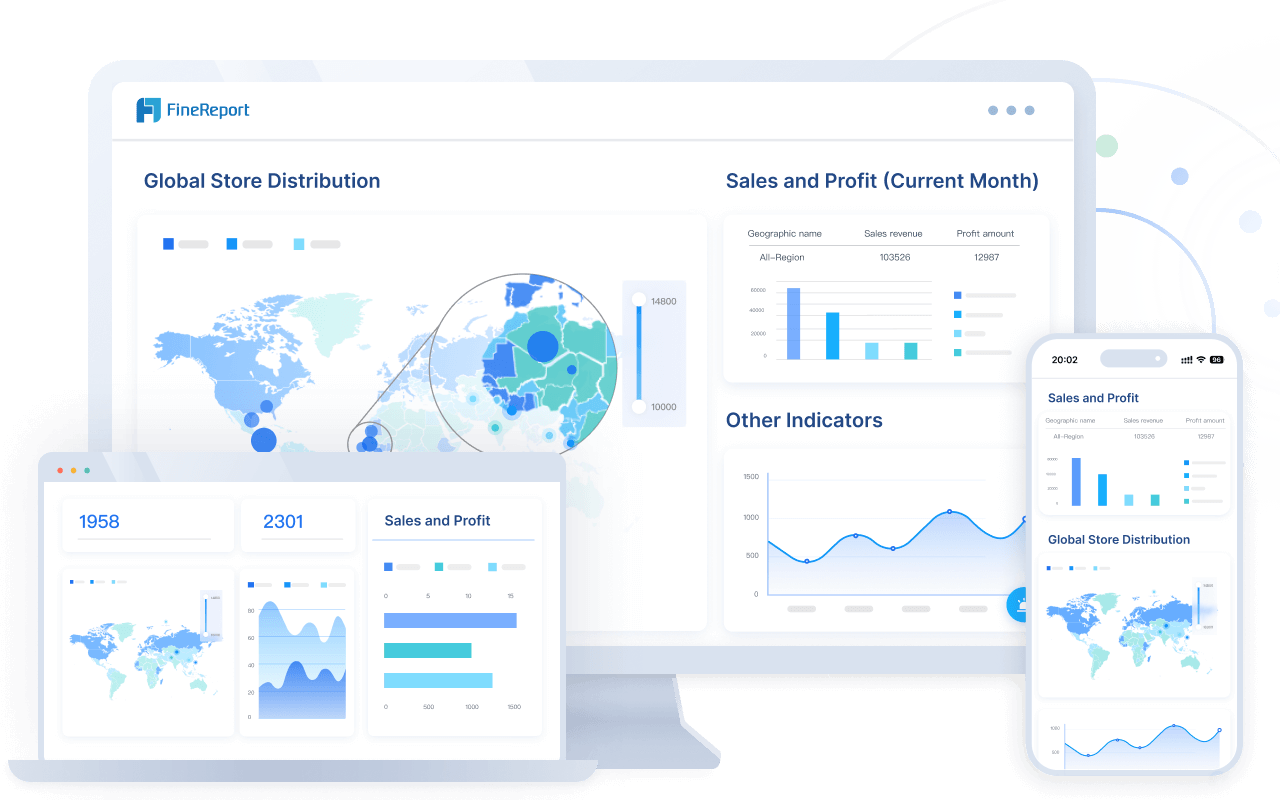
| Feature | Description |
|---|---|
| FineReport Designer | Enables creation of interactive dashboards with a drag-and-drop report builder. |
| HTML5 Charts | Offers over 50 styles of self-developed charts, including 3D and dynamic effects. |
| Widgets | Supports large data entry, customized data submission, and data validation. |
| Mobile App | Facilitates data analysis activities, including parameter queries and offline viewing. |
| Integration | As a Java software, it can be easily integrated with various systems. |
Users praise FineReport for its ease of use and strong data connectivity. Its ability to integrate seamlessly with existing systems makes it a valuable tool for advanced reporting. By mastering FineReport, you can present data in ways that drive impactful decisions.
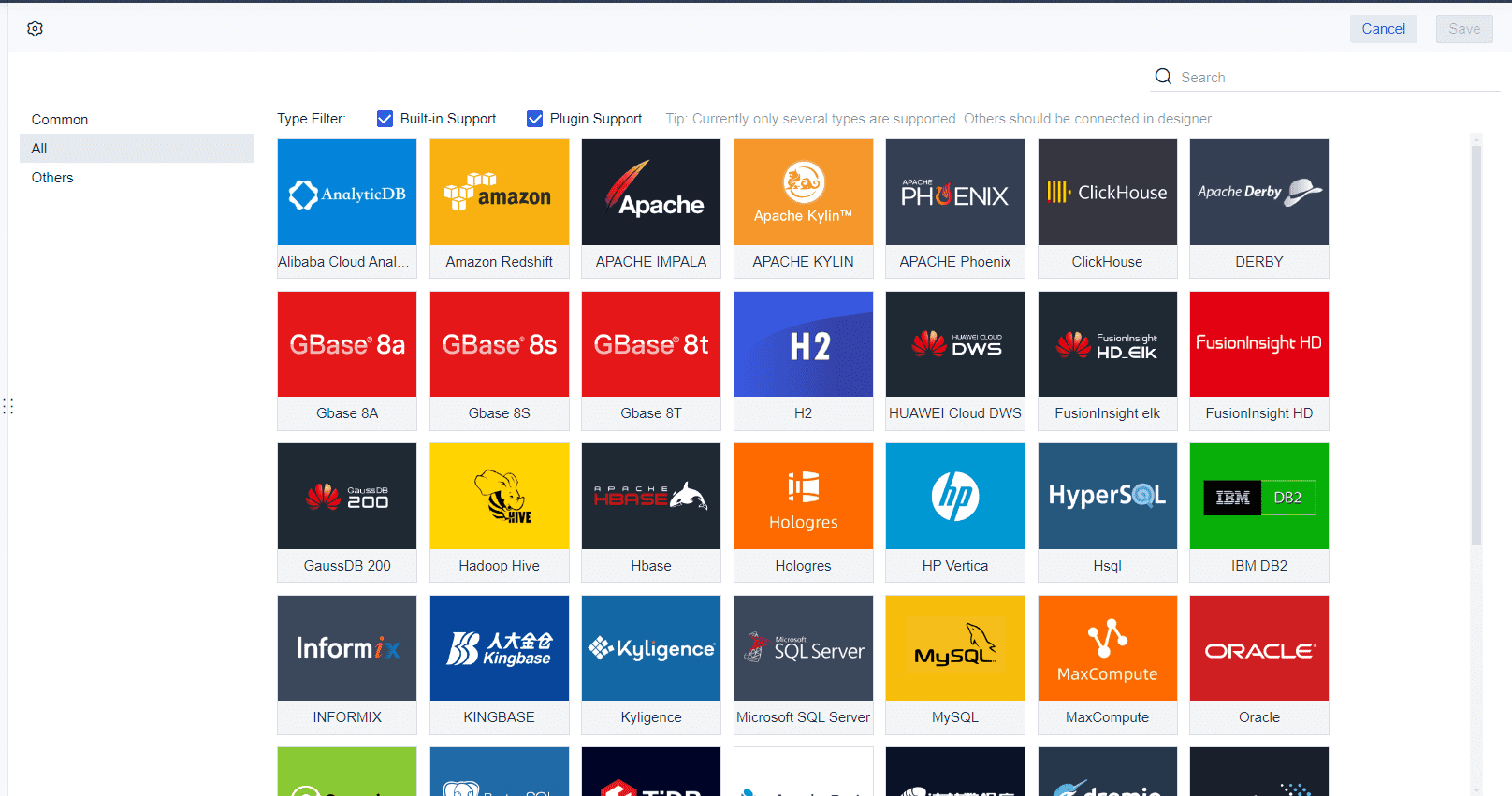
The role of FanRuan in supporting data-driven decision-making
FanRuan provides a comprehensive suite of tools designed to streamline data processes and enhance decision-making. These tools empower you to manage data efficiently, uncover insights, and implement strategies that align with organizational goals.
FanRuan’s offerings include:
- Enterprise-level solutions for digital transformation.
- Industry-specific insights tailored to your needs.
- Real-world case studies showcasing successful implementations.
- Webinars that guide IT executives, data managers, and business analysts in adopting innovative data solutions.
By utilizing FanRuan’s resources, you can stay ahead in the competitive field of data analytics. These tools not only refine your analytical capabilities but also position you as a key contributor to your organization’s success.
Data analyst salary in Malaysia are set to rise in 2025 due to growing demand and evolving industry needs. Your earning potential depends on skill specialization, certifications, and industry trends. The average data analyst salary reflects the value of expertise in this field. To stay competitive, focus on upskilling and obtaining certifications like the FanRuan Global Certification Examination. Leverage tools such as FineBI and FineReport to enhance your analytical capabilities. These steps will help you gain valuable insights and maximize your career prospects in this dynamic field.
Click the banner below to try FineReport and FineBI for free and empower your enterprise to transform data into productivity!
Continue Reading About Data Analyst Salary
FAQ

The Author
Lewis
Senior Data Analyst at FanRuan
Related Articles

10 Best Retail Analytics Software Platforms for Retailers
Compare the 10 best retail analytics software platforms for retailers to boost sales, optimize inventory, and gain actionable customer insights.
Lewis
Dec 16, 2025

11 Best Tools for Research Analysis for Academics
Compare the 11 best tools for research analysis to boost academic and professional research efficiency, data management, and collaboration.
Lewis
Dec 11, 2025

10 Best Market Research Data Analysis Tools to Try This Year
See the top 10 market research data analysis tools to boost insights, streamline workflows, and make smarter business decisions this year.
Lewis
Dec 11, 2025
